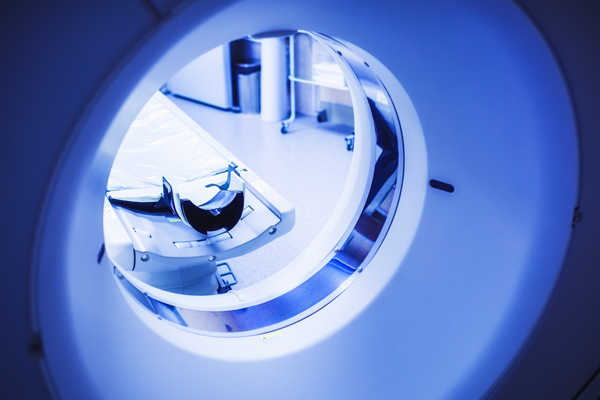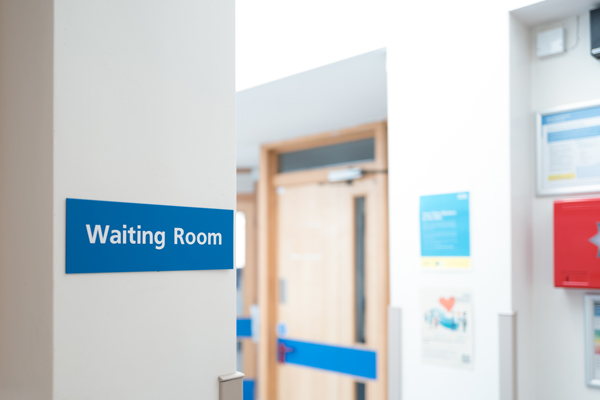How to become a radiologist UK

Radiology is one of the most exciting medical specialities. Becoming a radiologist may be an excellent career path for those interested in locum jobs or permanent jobs in radiology. Whether you're already a radiologist specialist or just starting out, this is a useful guide for you.
Be aware that radiology is a very competitive field. However, with hard work and a clear strategy, it's possible to be part of the UK residency program. In this blog, we discuss how to become a radiologist, what radiologists do, what you need to work in the UK and what visas are available for overseas radiologists.
What is a radiologist?
A radiologist is a medical doctor whose speciality involves treating patients with the help of medical imaging called radiology. Radiologists use special equipment such as CT scans, MRIs and X-rays to determine illnesses or injuries in patients. There are different types of radiologists. Some examples include:
- Interventional radiologists: Interventional radiologists use medical imaging equipment to examine minimal invasive surgical procedures. They work with surgeons to help diagnose and treat heart diseases, strokes or cancer.
- Diagnostic radiologists: Diagnostic radiologists use scanning equipment to examine and diagnose health concerns. They interpret the scans, which helps them determine the correct treatment plans for patients.
- Oncologists: An Oncologist uses radiotherapy to treat patients with cancer. They manage treatment plans, perform radiotherapies and assess the treatment process for their patients.
Where do radiologists work?
Most radiologists' jobs are NHS jobs. However, locum radiologists work in the private sector too. Radiologists primarily work in hospitals or other facilities that offer medical imaging. Some radiologists pursue careers as academic researchers. These radiologists usually work in universities, private research facilities or the government. In academics, radiologists can train or lecture medical students.
What does a radiologist do?
Radiologists use medical imagery equipment and techniques to perform various tasks related to diagnosing and treating illnesses. Other responsibilities include:
- Collaborate with other medical personnel to deliver insight and quality treatment.
- Examine patients and consult with them.
- Determine the appropriate imaging technique depending on the type of illness.
- Provide support to patients during treatment.
- Collaborate with surgeons to perform minimally invasive surgical procedures.
- Ensure patients and other medical personnel are safe from radiation exposure.
- Maintain patient records and communicate with other relevant medical personnel on the diagnosis.
- Mentor junior radiologists and interns and assist with research.
Common skills for radiologists
Common skills radiologists use include:
Analytical thinking
Analytical thinking is whereby one can identify, determine and solve problems. Radiologists use these skills to communicate with patients, identify illnesses, plan treatments and evaluate their progress. They use their knowledge of diseases and medical imagery to determine the best approach for treating a patient's condition.
Medical knowledge
Radiologists have extensive medical knowledge, which helps them diagnose medical conditions that can be evolving, complex and unique to each patient. They also know how to operate and interpret medical imaging equipment and personalise treatment plans for patients.
Manual expertness
Radiologists work with sensitive equipment that requires steady hands to operate. In surgery, they may be needed to guide delicate imaging devices through small spaces to carry out procedures.
Communication skills
Radiologists need to have efficient written and verbal communications. They spend significant time writing reports, communicating with patients and collaborating with other medical personnel.
Team work
Radiologists most often work in a team. They work with radiology technicians, nurses, junior doctors, doctors, physicians from other departments, administrators and other medical staff. The collaborative nature of work helps them use their teamwork skills to develop comprehensive plans for their patients.
The average salary for a radiologist UK job
The average salary for a radiologist UK job is £69,212 per year, with the potential to earn up to £120,000 per year. However, pay may vary depending on the level of experience, speciality, location and whether it's a locum radiologist job or a permanent one. A radiologist with many years of experience will make more than a graduate, for example.
For locum radiologist jobs, you may expect to earn a higher pay rate than a staff radiologist, with pay rates going up to £150 per hour.
How to become a radiologist UK
The steps to acquire a UK radiologist job include:
1. Complete a medical degree
Radiologists, just like medical doctors, must have a complete medical degree. You can pursue a programme accredited through the General Medical Council (GMC) to ensure that you have the highest standard of education and that you are registered and licensed by the GMC. A medical degree usually takes five or six years to complete.
2. Apply for GMC registration
After earning your degree, applying for provisional registration with GMC is next. Registering with GMC will enable you to enrol in foundation training, which is required for doctors to practice their clinical skills. This will allow you to work as a radiologist in training. As an oversees radiologist, you will need to get your primary medical qualification to be verified if:
• You are qualified in a medical school outside the UK, EEA or Switzerland.
• Your nationality is outside the UK, EEA or Switzerland.
• You don’t hold provisional registration and licence to practise yet.
Additional steps for overseas radiologists
3. Get a visa
Most overseas radiologists need a regular work visa. This type of visa makes it possible to bring your family to the UK, mainly a spouse and children. It does not include parents, siblings or relatives. It's also possible to apply for permanent residence with this type of visa. Generally, you can gain UK citizenship within six years.
4. Be proficient in the English language
All practising UK doctors need to have appropriate knowledge of the English language (IELTS, OET or other).
Become a radiologist through Globe today</h3
Several factors determine how to be a radiologist UK. Generally, a locum radiologist can earn almost twice what an employed radiologist makes in the UK. If you're interested in finding the best locum radiologist job in the UK, let us help you choose from our incredible range of locum jobs across the UK. If you have any questions, don’t hesitate to contact us

Candidate Registration
Registering with Globe couldn't be easier. Simply fill in the form below and one of our experienced recruitment professionals will contact you within 24 hours





